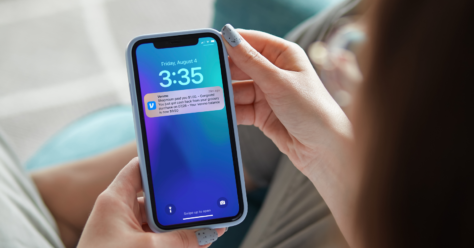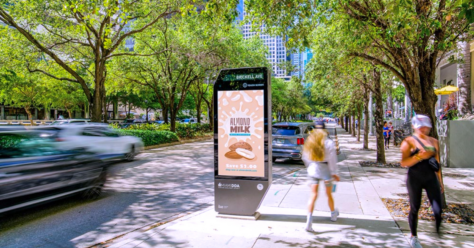What Is Influencer Marketing?
An influencer is an online personality who can influence or inspire an audience. Influencer marketing is a form of social media marketing where brands hire influencers to promote their products or services to their followers. Through endorsements, product mentions and authentic content, influencers have the ability to directly connect brands with consumers who trust them.
Micro influencers vs. celebrity influencers
A micro influencer typically has a social media following that is bigger than an average person but not as big as a mega-celebrity like Selena Gomez or Cristiano Ronaldo.
Micro influencers typically occupy smaller niches than celebrity influencers. A celebrity influencer is someone who has millions of followers who usually know them outside of their social media presence— like from movies, sports or some other form of entertainment.
While both micro influencers and celebrity influencers might share similar platforms and interests, micro influencers are typically able to connect with their followers on a more personal level and may come across as more genuine, authentic and approachable than their celebrity counterparts.
What is an example of successful influencer marketing?

Brands from any product category can reach consumers in meaningful ways through effective influencer marketing. U by Kotex® worked with Quotient to raise awareness of period poverty through a unique campaign leveraging social influencers.
To reach shoppers, U by Kotex® partnered with selected content creators whose platforms focus on empowering women. Many of these influencers had personally experienced issues relating to period poverty in the past—enabling them to lead authentic, intimate and vulnerable conversations that truly resonated with the target audience.
U by Kotex® also leveraged strategic paid social media for certain retailers to further amplify reach—calling out the offer and a matched-donation initiative. Precise targeting delivered ads to 20- to 45-year-old females in the U.S. who had purchased feminine care products in the past and were shoppers at CVS and Walgreens retail locations.
The campaign achieved significant reach to its target audience, delivering a total of 13.6 million social impressions. Consumers also demonstrated their interest and commitment to the cause with a large growth in new U by Kotex® brand shoppers at the participating retailers. Even more significantly, the combined retailer programs resulted in more than 1 million pads donated!
How do I put together an effective influencer strategy?
Quotient works with brands to select the best influencers for their unique campaigns considering a range of factors to help create the right influencer strategy for each organization’s goals.

Key Tips for Implementing Influencer Marketing
- The smaller the following, the more involved the audience.
- Embrace different trending forms of online content, like short-form video.
- Focus on relatability and authenticity to reach consumers.
- Have a clear vision and goal, but remain flexible.
- Look beyond follower count when selecting influencers to partner with.
- Work with diverse influencers year-round.
- Trust content creators’ vision and ability to relate to their audience.
Measuring success with an influencer campaign
Quotient’s Social Influencer Network connects content partners with the brands they love, allowing them to create high-quality, high-performance sponsored content.
Quotient does not rely solely on a creator’s influential reach to make waves in the digital space. Instead, we use a proven combination of data-driven content inspired by our Quotient Social Platform trend data, alluring photography and paid media to achieve results for our clients and content creators.
Unlike most influencer companies, Quotient’s sponsored content posts are amplified through paid media—driving high volumes of traffic back to the content creator’s site and social channels. This allows influencers to grow their personal brand by reaching new audiences, readers and followers.
To capitalize on peak performance times, Quotient Social Platform pulls data from Facebook, Pinterest and our influencer network to monitor and predict trends—helping brands and creators form an educated content strategy.
Platforms for influencer marketing
Instagram is usually the go-to platform for influencer marketing, yet emerging platforms such as TikTok are on the rise and are quickly gaining large user counts.
Both Instagram and TikTok are great platforms for influencer marketing because of how their algorithms cater to short-form video. This emphasis on popular short-form video formats helps influencers share their interests, perspectives and advice to connect with their audience in an engaging way.
Audiences resonate with creative and authentic content. A picture might say a thousand words, but videos can show the product or service in action while keeping people entertained for longer than a standalone image.


How do I connect my brand with influencers?
Influencers excel at building genuine connections with their followers. Through content creation, influencers can also introduce their audience base to a product, service or brand in similar ways that friends share beloved products by word of mouth—the powerful difference is that creators authentically share their recommendations at a larger scale and with greater impact. Being able to see a product or service in action from a trusted source can be instrumental to converting a viewer to a customer.
Micro influencers specialize in connecting with niche groups of consumers with inspiring and engaging content on an authentic, human level. When micro influencer content is amplified through paid media, it can be scaled and targeted to reach relevant audiences and achieve the brand’s campaign goals.
Now that you’re up to speed on influencer marketing, contact us today at hello@quotient.com to learn how to incorporate it into your campaign strategy.



